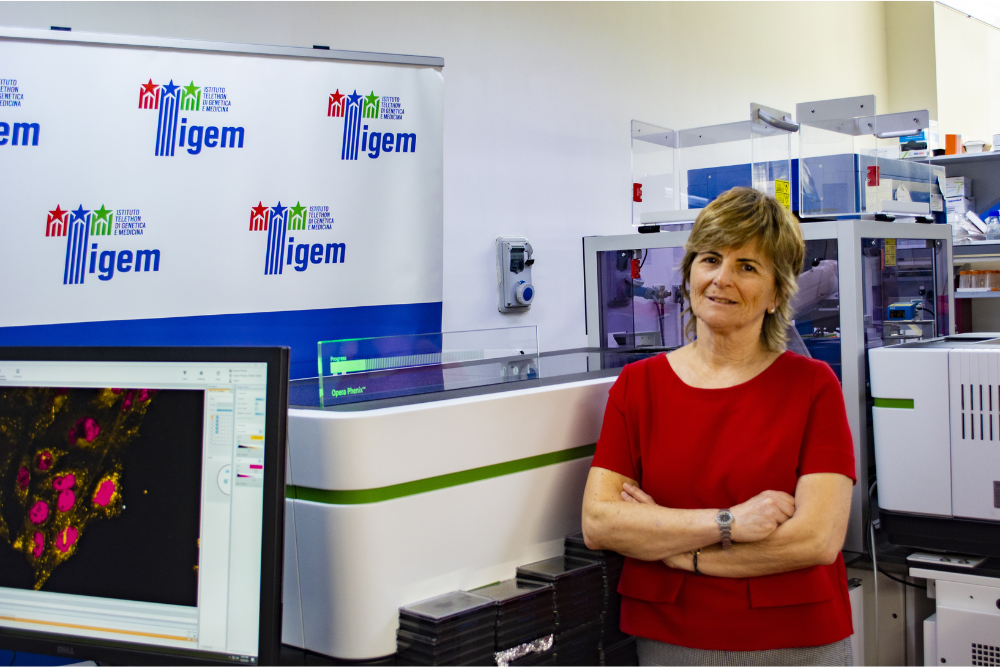Research conducted by Antonella De Matteis at the Telethon Institute of Genetics and Medicine in Pozzuoli has identified a molecule that can counteract kidney dysfunction in this rare syndrome of genetic origin. Following an agreement between the Foundation and the biotech company responsible for the drug, currently undergoing trials for psoriasis, a clinical trial is set to commence involvinga small group of patients. The trial, coordinated by Francesco Emma, will be conducted at the Bambino Gesù Children's Hospital-IRCCS in Rome and will last 12 months.

A drug currently in advanced trials for psoriasis will soon also evaluated for its potential in treating patients with Lowe syndrome, a rare condition for which no therapy is available.
Thanks to a collaborative agreement between Fondazione Telethon and the Israeli biotechnology company Can-Fite, which owns the molecule, a clinical trial will be launched at the Bambino Gesù Children's Hospital - IRCCS in Rome. This trail aims to evaluate the drug’s safety and efficacy in addressing renal dysfunction, a condition that leads to protein and solute loss in urine.
Lowe syndrome also known as "oculo-cerebral-renal syndrome" is characterized by congenital cataracts, reduced muscle tone at birth, and intellectual disability of varying severity and, most critically, impaired kidney function. The inability of the kidney to reabsorb proteins and solutes can progress to renal failure, posing significant risks to survival.
Piclidenoson, the molecule being studied, was identified after years of research by Antonella De Matteis and her team at the Telethon Institute of Genetics and Medicine (TIGEM) in Pozzuoli.
De Matteis, professor of Biology at the University Federico II in Naples and among the world's leading experts on "cellular trafficking," the intricate mechanisms that govern the transport of substances within cells, delved deeply into the mechanisms underlying the syndrome, Her team identified a precise molecular target on which to act to prevent the progressive deterioration of the kidneys.
From an initial pool of nearly 1,300 compounds, they gradually selected the most suitable ones, ultimately identifying Piclidenoson and confirming its therapeutic action in cellular and animal models.
Building on these results and with the support of the Business Development Office of Fondazione Telethon, an agreement was established with the Israeli company, which committed to test its molecule on this rare syndrome as well.
Given that the molecule was already in advanced trials for psoriasis (a widespread condition affecting 2.8 percent of the Italian population, according to the Italian Society of General Medicine) it was proceed directly to Phase II, since the safety of the potential drug had already been extensively evaluated.
"Knowing that this development could improve the lives of children, young people and entire families, people I have come to know personally and whose daily challenges I deeply understand, fills me with inmense pride and hope."
Antonella De Matteis, PI of TIGEM
The clinical trial will last one year and initially involve 5 patients: it will be led by Francesco Emma, head of the Department of Nephrology and Dialysis at the Pediatric Hospital Bambin Gesù - IRCCS in Rome, within the Trial Center directed by Marina Vivarelli.
The collaboration with the Italian Lowe Syndrome Association (AISLO), will also be pivotal. Founded in 2002 with the support of Fondazione Telethon and Antonella De Matteis, AISLO has been instrumental in driving efforts to address this rare condition.
"For someone who, has dedicated the life to basic research, rigorously investigating the mechanisms that govern cellular function, it is profoundly rewarding to witness years of work 'translated' into a possible therapeutic opportunity. Knowing that this development could improve the lives of children, young people and entire families, people I have come to know personally and whose daily challenges I deeply understand, fills me with inmense pride and hope. It is by no means a given that the study of a fundamental biological process necessarily leads to clinical application, but our experience shows that it is possible. This result reaffirms, once again, the importance of constant and sustained support for basic research, without which such achievements would not be attainable," commented Antonella De Matteis.